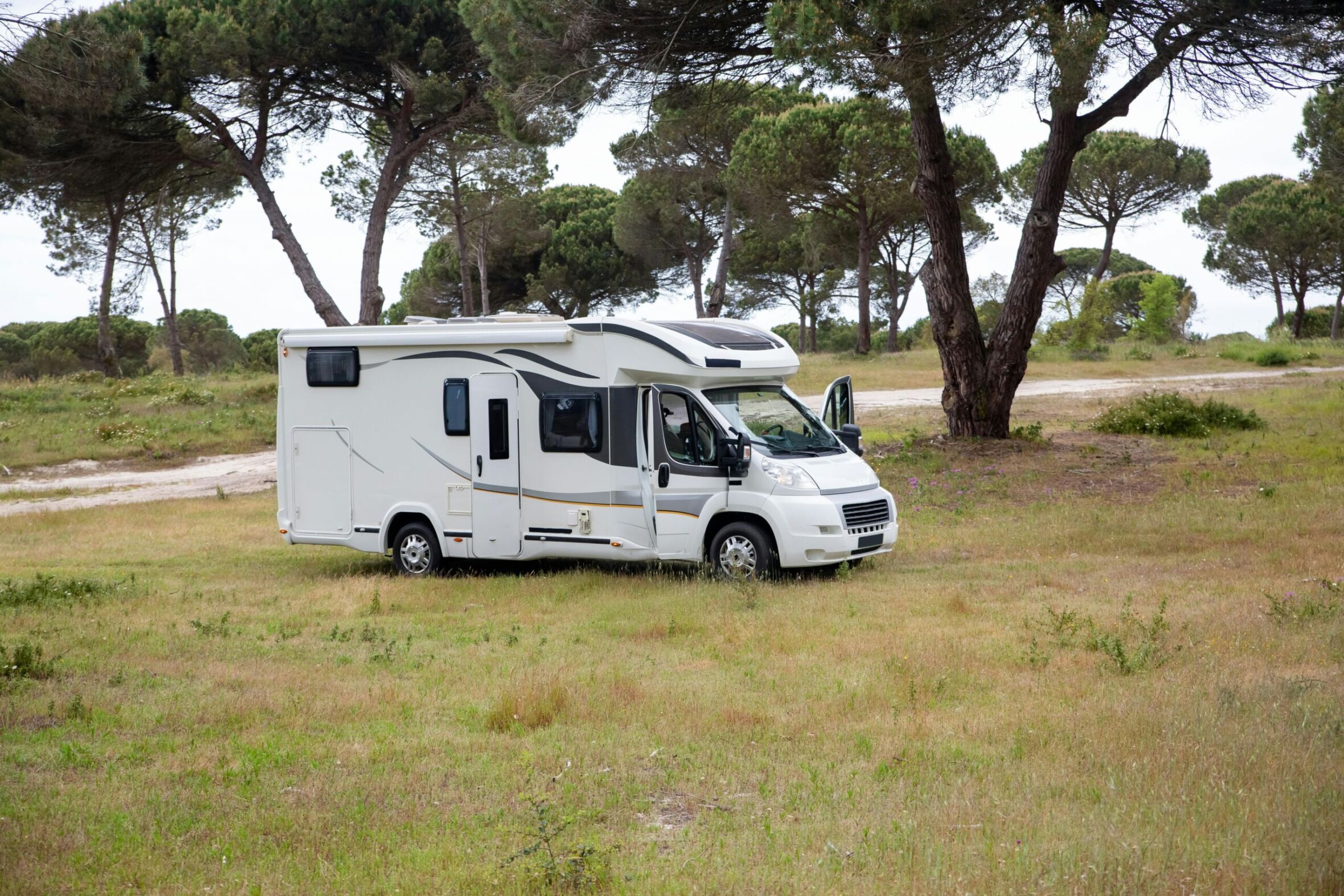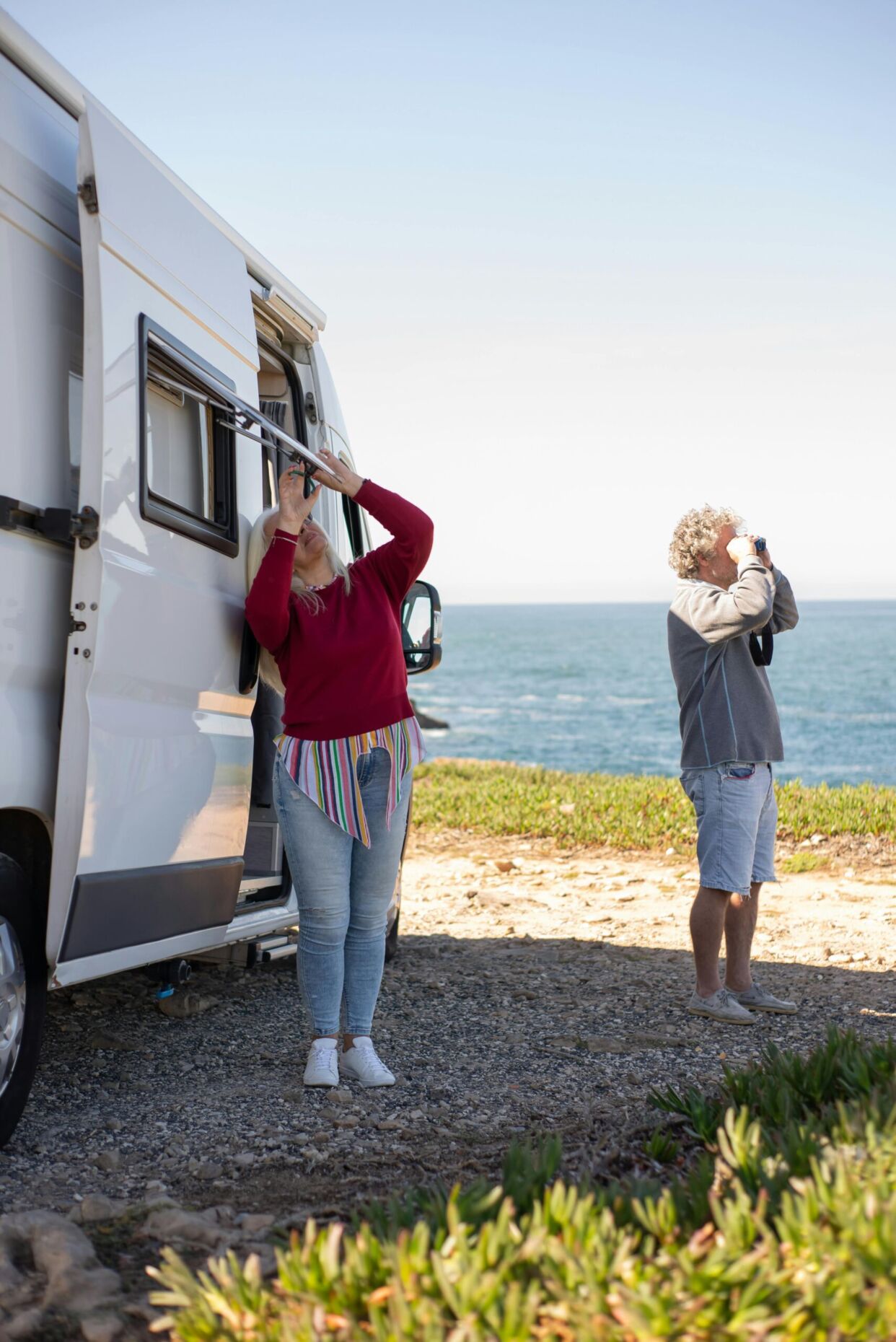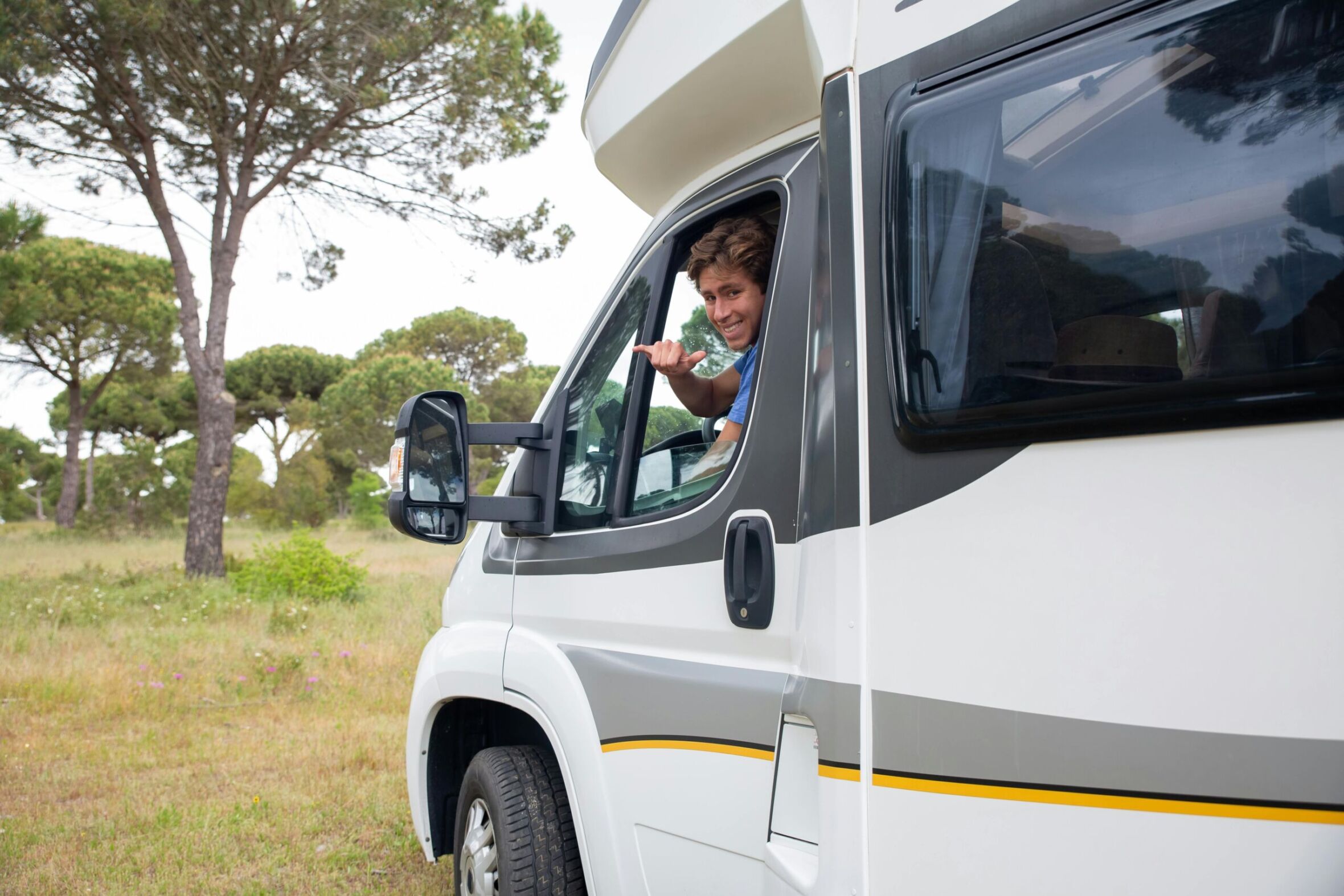Living in an RV: Is It Really as Comfortable as You Think?
The idea of living in an RV can seem incredibly [...]
The idea of living in an RV can seem incredibly appealing. Picture this: waking up to a new view every day, having the freedom to travel anywhere, and the simplicity of downsizing to the essentials. With tiny homes and minimalist lifestyles trending, it’s no wonder that the concept of full-time RV living is gaining popularity.
But is living in an RV really as comfortable as it seems? The reality is a little more nuanced. While it offers plenty of advantages—freedom, flexibility, and a chance to declutter your life—it also comes with its own set of challenges. Here’s a breakdown of what to expect if you’re considering making an RV your full-time home.
1. The Space: Cozy or Cramped?
When most people think about RV living, they picture a cozy little space with just the basics: a bed, a kitchenette, maybe a tiny bathroom. In reality, how comfortable this feels depends largely on the size and layout of your RV—and your personal preferences.
- Size Matters: Some RVs are spacious, with slide-outs that extend the living area, full-sized kitchens, and multiple sleeping areas. Others are compact, designed for weekend getaways, with barely enough room to turn around. If you’re living full-time in an RV, space becomes crucial. The larger models (Class A or Class C motorhomes) are more like tiny apartments on wheels, while smaller travel trailers or Class B vans might feel more like an extended camping experience.
- Storage: Storage is another key issue. When you’re living in a tiny space, every item you own must have a place. Full-time RVers often find that decluttering is essential. You’ll need to minimize your belongings and find creative storage solutions to avoid feeling like you’re living in a cramped box.
- Comfort Level: It’s all about adapting. For some, a cozy little space with a bed that doubles as a sofa is just fine. For others, it can feel too small, especially if you’re used to a larger, more traditional home. In terms of comfort, it depends on how much time you’re willing to spend getting comfortable with the space—and how much time you’re planning to spend indoors.
2. The Bathroom Situation: Is It Really That Bad?
One of the most common concerns about RV living is the bathroom situation. Many RVs come equipped with a small, functional bathroom—complete with a toilet, shower, and sink—but it’s definitely not the same as having a spacious bathroom at home.
- Size & Privacy: The bathroom in an RV is, for most people, more of a “utility” than a luxurious space. The shower, for example, is usually small and might not have the same water pressure or space you’re used to. The toilet is also a bit of a learning curve, as you need to manage waste properly to keep everything functioning (and odor-free). In terms of privacy, it can feel cramped, especially if you have a family or live in a small RV. However, many people find they quickly adjust.
- Waste Management: The black tank (where wastewater from the toilet goes) is a major consideration. Full-time RVers need to empty the tanks regularly, which can be a bit of a hassle—especially in cold weather when water lines can freeze. On the plus side, RV parks and campgrounds often provide dump stations, and many RVers invest in a portable tank to make this process easier.
- Amenities: Some larger RVs have full-sized bathrooms with better shower heads, bigger toilets, and more space to move around. If you don’t mind downsizing a bit, many find that RV bathrooms do the job just fine. Still, it’s not the same as having your own spa-like retreat.
3. The Kitchen: Can You Really Cook?
For many full-time RVers, cooking in an RV is one of the most significant adjustments. While the idea of having a kitchen on wheels is appealing, the reality is that RV kitchens are often tiny and don’t always come with the same conveniences you’re used to.
- Limited Space: You’re working with a small fridge, a two-burner stove, a microwave, and maybe an oven—so meal prep is much more basic. Storage is also limited, which means you’ll need to plan meals carefully and pack efficiently. It’s not the place for gourmet cooking, but simple meals like pasta, soups, and grilled items work well.
- Counter Space: The counter space is often minimal, so you’ll need to be creative when preparing meals. Many RVers use fold-out countertops or portable cutting boards to make the most of what they have. If you’re used to sprawling out with all your ingredients and tools, you might find this part of RV life a challenge.
- Cooking Outside: Many full-time RVers take advantage of outdoor cooking options like campfires, grills, and portable stoves to expand their cooking space. This not only gives you more room to prepare meals but also brings the joy of cooking in the great outdoors.
4. Temperature Control: Summer Heat, Winter Cold
Whether you’re living in an RV for a season or year-round, temperature control is a crucial factor. The weather can be your best friend or your worst enemy.
- Summer: RVs tend to heat up quickly when it’s hot outside, and cooling them down can be a challenge. Air conditioning is usually available, but it often requires a generator or access to shore power. If you’re in a smaller RV, you may not have central air, and the unit you do have may not be powerful enough to cool the entire space.
- Winter: On the flip side, RVs can get really cold in winter, especially if they’re not winterized properly. Insulation is typically minimal, so staying warm during colder months may require space heaters, extra blankets, or even heated blankets for bed. Water systems can freeze in sub-zero temperatures, so many RVers choose to head to warmer climates in the winter.
- Climate Flexibility: The good news is that you have the flexibility to travel to different climates. Some full-timers move seasonally, choosing warmer places during the winter and cooler spots during the summer. If you plan to live in your RV full-time, it’s a good idea to consider investing in thermal curtains, a better heating system, or a dehumidifier depending on your location.
5. Wi-Fi & Connectivity: Staying Connected on the Road
In today’s digital age, being connected is more important than ever. Whether you’re working remotely, staying in touch with loved ones, or just streaming movies, staying connected in an RV can be tricky.
- Internet Access: Wi-Fi is often available at RV parks, but it’s not always reliable or fast. If you plan to work from the road or need consistent internet, investing in a mobile hotspot or satellite internet can make all the difference. You may also want to look into signal boosters to get better reception in more remote locations.
- Cell Service: Cell service can also be spotty, especially in rural areas. Some RVers rely on their phones as their primary source of internet, but it’s not always as dependable as home-based service.
- Off-the-Grid Living: Many RVers embrace the off-the-grid lifestyle, using solar panels or generators to power their rigs. This allows for a more peaceful and disconnected experience, but it’s something to consider if you rely on consistent Wi-Fi for work or communication.
6. Community & Lifestyle: Freedom vs. Loneliness
Living in an RV can be incredibly freeing. You can explore new places, meet new people, and live life on your terms. However, the solo nature of RV life can also bring feelings of isolation.
- The Solo Experience: Some people thrive on the solitude, while others find it a bit lonely, especially if they’re used to a busy, social home life. That said, RV parks, campgrounds, and online RV communities can provide opportunities to meet fellow travelers, exchange tips, and even make lasting friendships.
- Social Life: If you’re someone who enjoys socializing, RV living can be a mixed bag. While you have the freedom to be alone, you also have opportunities to join meetups, attend rallies, or stay in places where other RVers gather. The beauty is that you can choose your level of social interaction.
Is RV Living Really Comfortable?
In the end, the comfort of living in an RV boils down to personal preferences. It’s a huge lifestyle change that requires flexibility, adaptability, and a willingness to embrace the downsides (like tight spaces, less privacy, and the challenges of managing resources). For some, it’s the ultimate adventure and a way to simplify life—freedom to explore, flexibility to stay in beautiful locations, and the joy of minimalism.
For others, it can feel like a bit too much to handle, especially when it comes to the small space, limited amenities, and lack of conveniences. So, is it as comfortable as you think? It can be—but it requires adjusting your expectations, being creative, and embracing the small joys of RV living.
Ultimately, RV living offers an unparalleled level of freedom, but comfort is something you’ll need to build yourself—one small, cozy space at a time.
Are you ready to hit the road? 🌄🚐





